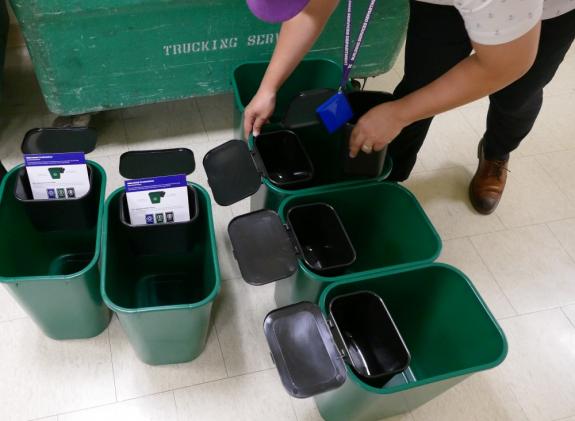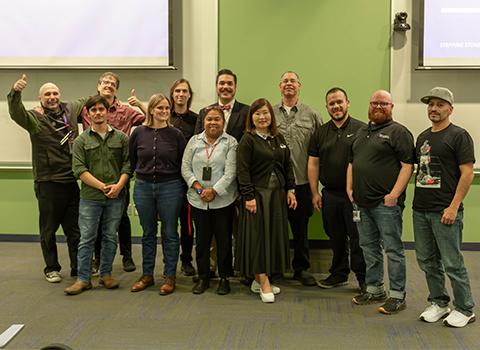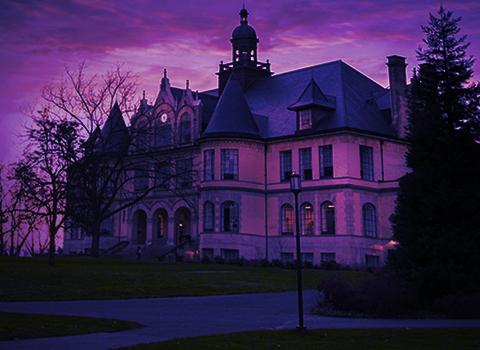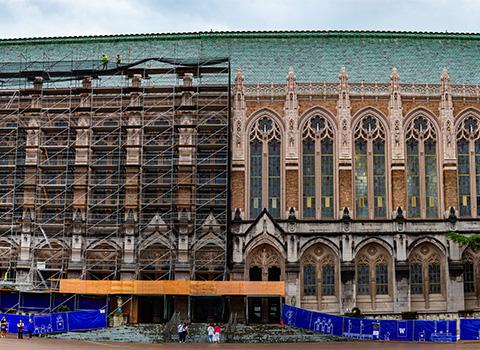MiniMax comes to Health Sciences

UW Recycling staff works with UW Moving to deliver waste diversion bins to Health Sciences Building.
UW Recycling of Building Services Department has been focusing on expanding its team, preparing inventory and designing the 2018 install strategy in order to tackle Phase I of the MiniMax expansion plan: implementing the waste diversion program in the Health Sciences Building (HSB).
Under the direction of UW Recycling Program Supervisor Erica Bartlett, the MiniMax team officially began converting 120 restrooms, all hallways and 1,500 offices/workstations in HSB to MiniMax on January 26, 2018, and completed the challenging task on May 3, 2018. This recent accomplishment translates to:
- 1,500 fewer plastic bag liners discarded daily
- 25 custodial hours/per day redirected to essential cleaning tasks
- Approximately 59 tons of material diverted from the landfill annually
The MiniMax team
The MiniMax team
The MiniMax expansion team includes Student Waste Diversion Coordinator Audrey Taber and MiniMax Program Assistants Todd Carey and Kevin Terrado. Taber is a current UW student, Terrado a recent alumnus and Carey has worked at other departments at the UW. “Together they share many perspectives of the UW experience and are motivated by the pride that all students, faculty and staff feel for our campus,” said UW Recycling Manager Liz Gignilliat.
An install requires more than showing up with new bins. Months prior to an install date, the team handles administrative duties including meetings with building coordinators, customers and custodial supervisors to determine needs and install strategies.
“Soon after Todd and Kevin were hired in January, they began assisting Audrey — who has been involved with MiniMax installs since 2016 — in conducting walk-through site visits of Health Sciences Building (HSB) and noting infrastructure improvements,” said Bartlett.
Each team member alternates in leading installations — most recently 15 wings of HSB. “Coordinating a MiniMax install requires an eye for detail, project management skills, strong communication, customer service, flexibility and teamwork,” said Bartlett.
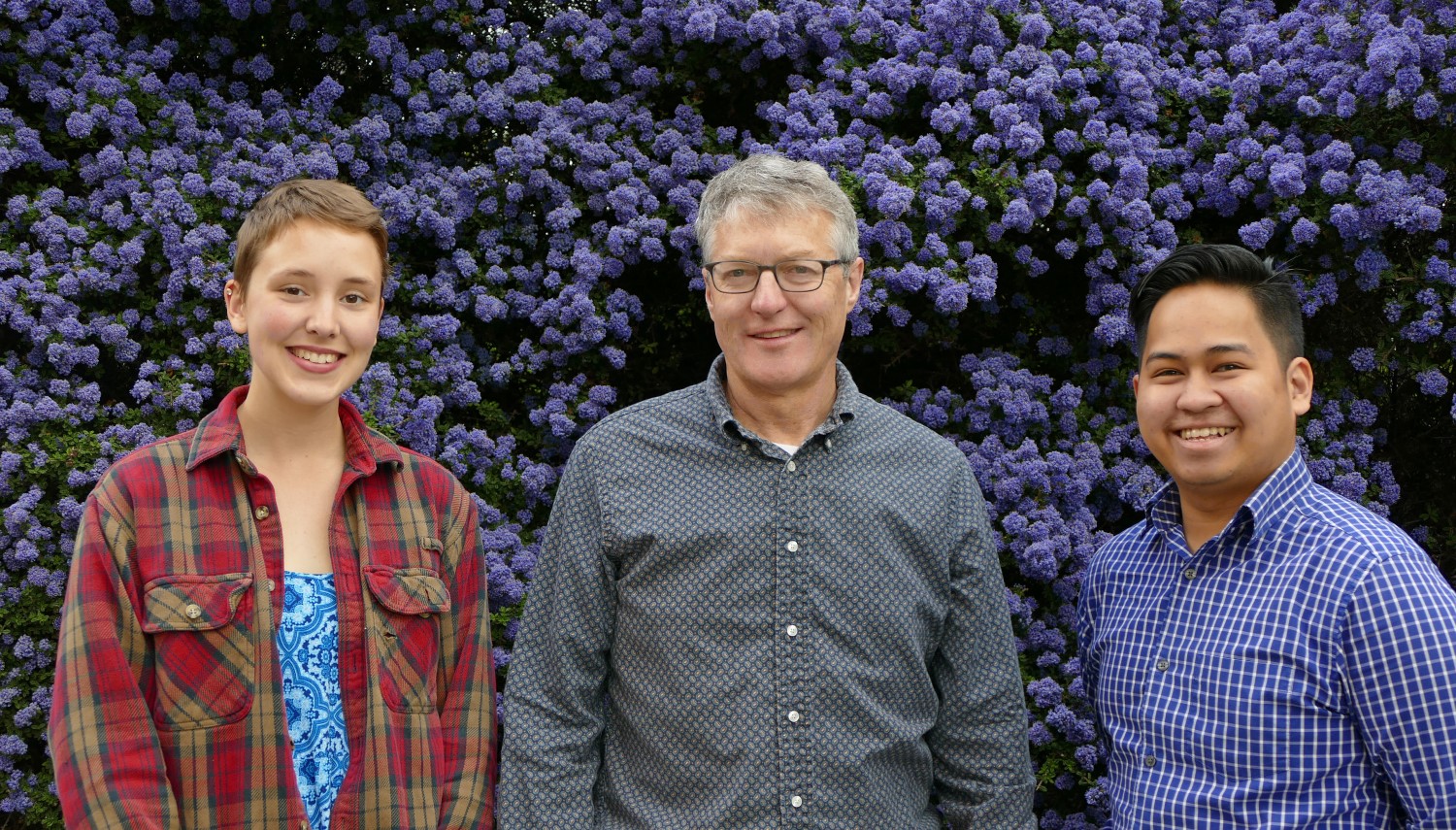
The MiniMax team: Audrey Taber (left), Todd Carey and Kevin Terrado.
Campus partners
Campus partners
Along with teamwork comes support in the form of campus partners’ professional skill sets. In the case of streamlining public area bins, Terrado suggested turning to the Facilities Maintenance & Construction for their assistance.
“Collaborative work between departments is significantly important for major projects such as implementing Minimax in a building as large as HSB,” said Terrado. “By seeking out the metal shop’s expertise, we were able to update and unhinge lids from old public area bins quickly.”
The MiniMax team also partners with UW Moving of Finance & Business Services to transport large quantity bins to installation sites. BSD's Custodial Services and UW Recycling operations crew and program coordinators contribute during installs that require an all-hands-on-deck approach.
“It's imperative to be detail-oriented during every step of the way so the project is accurately planned out from start to completion,” said Bartlett. “It’s vital that everyone is informed of any changes — and always able to answer who, what, when, where, why and how. At the same time, we all need to be flexible because nothing will go 100% perfectly all the time; it's imperative to be able to roll with the punches,” said Bartlett.

Left: Audrey Taber and Todd Carey work together during an install in HSB.
Right: Arranging public area bins.
Keeping customers informed
Keeping customers informed
In an effort to provide as much information as possible to current and future MiniMax customers, UW Recycling created a MiniMax information page along with a list of answers to frequently asked questions. Additionally, HSB Custodial Manager Mark Hash offered the suggestion of scheduled information sessions for new customers, which resulted in two tabling events arranged by Carey and co-hosted by student group Eco Reps Greening Health Sciences Initiative.
While UW Recycling staff are onsite during an install, carts full of desk-side bins often invite questions from building occupants and visitors — which encourages further discussion about sustainability. “The program provides a platform for us to discuss changes we can make to better our campus and the environment,” said Terrado.
"I love having any chance to explain MiniMax and help assure customers that the program really is a small change to their daily routines," said Taber. "The benefits to overall campus sustainability and custodial services will make a substantial impact."
“I am excited that HSB has joined the rest of campus in the MiniMax program,” said Building Coordinator and Manager of HSB Management and Health Sciences Security, Paul Siscel. “My office has been participating for about eight months, so I can say from personal experience that it is a no-hassle way to contribute to a sustainable campus,” said Siscel.
More to come
More to come
“Six months ago, the goal of 100% adoption within a one-year time span seemed too lofty to achieve,” said Bartlett. “But now that we’re working with a strong and fully staffed team, I believe it's obtainable. I'm excited to see how the impact of our hands-on work affects the University's waste diversion rate for years to come,” said Bartlett.
The MiniMax team is currently focused on Phases II through IV, which consists of 44 academic and facilities buildings to be completed by the end of December 2018. "What's exciting is that at the conclusion of this project, UW in Seattle will have one standardized system for compost, recycling and landfill," said Carey.
"The MiniMax expansion opens an opportunity for each campus community member to contribute to the University’s sustainability initiative,” said Terrado.
